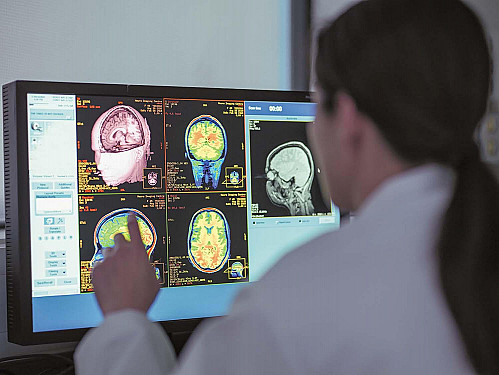Just what is pneumonia, anyway?

Surprisingly, one of the big topics of this election season has been pneumonia. In September, news outlets reported that Hilary Clinton would be taking a few days off the campaign trail because she had pneumonia. It got me thinking: what do they mean by "pneumonia"? The question comes up because pneumonia is not just one disease. There are several types and causes. Some are temporary setbacks, and others are more serious. Treatments vary as do recovery times.
Pneumonia defined
The word "pneumonia" comes from the Greek, "pneumon" (lung) and "ia" (disease). Medical dictionaries define it as an infectious lung disease in which fluid and inflammation in the lungs cause cough, fever, and shortness of breath. While this may sound clear enough, the term can actually cover a lot of ground. In addition, there are conditions other than pneumonia (such as bronchitis) that can cause similar symptoms. Pneumonia is generally diagnosed by a combination of symptoms, examination findings (especially listening to the chest with a stethoscope), and the results of a chest x-ray.
The different faces of pneumonia
A variety of microorganisms can cause pneumonia, including viruses, bacteria, fungi, or mycobacteria (the most famous member of which is tuberculosis). People who have one type of pneumonia may experience a very different illness from someone else with a different type. For example, people with certain types of bacterial pneumonia may cough up a lot of thick, dark red sputum while those with viral pneumonia may not cough up anything at all. Those with fungal pneumonia tend to be frail or have weakened immune systems to start with and tend to be quite sick. For some, the illness lasts a few days or a week even without treatment; for others, it can take weeks to improve even with powerful antibiotics. There are even forms of pneumonia that are chronic — that is, they persist, despite treatment.
Pneumonia: walking, double, and otherwise
You may have heard of the following terms and wondered what they meant — here's a brief rundown:
- Walking pneumonia: A mild case of pneumonia. A person with walking pneumonia doesn't need to be in the hospital and can continue with most routine activities.
- Double pneumonia: Both lungs are affected.
- Lobar pneumonia: This refers to pneumonia in which the infection is limited to one (or more) sections (lobes) of the lung as shown on a chest x-ray.
- Atypical pneumonia: This describes a type of pneumonia that tends to be milder, with little or no sputum production; the chest x-ray may show areas of fluid in the lungs but not in a lobar pattern.
- Aspiration pneumonia: A type of pneumonia due to food, drink, saliva or other material that is swallowed but 'goes down the wrong pipe' and winds up in the lungs.
- Obstructive pneumonia: An infection develops behind a blocked airway (bronchus); for example, a pneumonia can develop after lung cancer compresses a bronchus.
- CAP: This stands for community-acquired pneumonia and refers to pneumonia in a person who has not been in a healthcare facility or receiving active medical care prior to becoming ill. Doctors divide patients into CAP and HCAP (see below) because the types of microorganisms causing the infection and the treatment recommendations differ between the two.
- HCAP: This stands for healthcare-associated pneumonia and refers to pneumonia's developing in a person who has been in the hospital or other healthcare facility. This type of infection is more likely than those in CAP to be resistant to commonly used antibiotics.
- Non-infectious (or chemical) pneumonia: Also called "pneumonitis" (literally: lung inflammation), this includes lung inflammation due to chemical irritants, such as inhaled fumes or gases. While people with this type of pneumonia often get antibiotics, such treatment is usually .
- Consumption: This is an old term for tuberculosis.
As you can see, hearing that someone has pneumonia doesn't tell you much about the type, cause, or seriousness of the condition. Additional testing (such as blood and sputum tests or chest CT ) can be helpful (though is not always necessary). So, the next time you hear that someone has pneumonia — whether they are running for president or not — ask for the details. They matter a lot.
Follow me on Twitter @RobShmerling
Disclaimer:
As a service to our readers, Harvard Health Publishing provides access to our library of archived content. Please note the date of last review or update on all articles.
No content on this site, regardless of date, should ever be used as a substitute for direct medical advice from your doctor or other qualified clinician.















